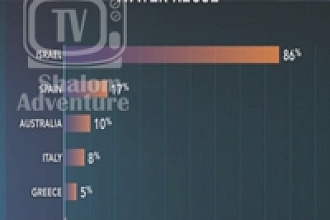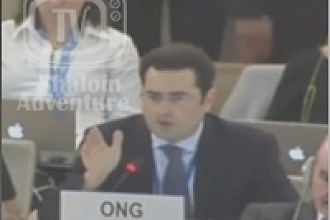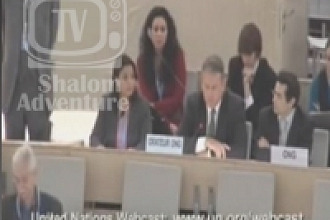Natan Sharansky, an Ukranian-born Israeli computer scientist, politician, and human rights activist, was arrested by the Soviet Union in the late 1970s on charges of high treason for spying on the United States.
He was was arrested by the Soviet Union in the late 1970s and released from Soviet prison years later under intense pressure from the Reagan administration, went into Israeli politics in the mid-1990s serving in the Knesset and Israeli Parliament, initiated Yisrael B’Aliyah, Israel’s first political party reflecting the views of Russian-speaking Israelis, and went on to serve as the Chairman for the Jewish Agency of Israel as the poster child for an organization whose mission was to reabsorb the Jewish people back to their Israeli homeland.
While in prison, it was the game of chess that kept Sharansky from losing his mind from the endless hours of turmoil and isolation in solitary confinement. However, he had much time to also think and reflect, and many of his ideas came to fruition two decades later when he would be an internationally known visionary personifying the mission of the Jewish Agency of Israel, or HaSochnut HaYehudit L'Eretz Yisra'el in the Hebrew. This non-profit organization has several sub-programs and initiatives focusing on absorbing the Jewish people of the diaspora back into the fabric of mainland Israel, and has effectively brought three million Jewish people back to Israel while assisting with transitional housing to help these immigrants become established when they first move to Israel.
“...We need more and more young Jews coming to Israel,” Sharansky stated in an interview. “And we need more and more Israelis visiting Jewish communities in the diaspora. That’s our goal at the Jewish Agency: We are developing many different projects that encourage more young Jews to come to Israel. Each year I’ve been at the Jewish Agency we send out more and more shlichim, ambassadors from Israel. We have close to 2,000 now. We also have projects in Third World countries, where young Jews can be involved in the work of tikkun olam. We have people coming for a few weeks, a year of studies, of social activism, of internships, to work in youth movements. Whatever a young Jew is interested in doing, we want to help them do it in Israel, because even a few weeks or months spent in Israel will have a tremendous influence on their life.”
Sharansky has also responded to interview questions about his vision for the American Jewry specifically through the organization.
“What can keep them connected is their desire to be part of the Jewish story,” Sharansky continued. “As one who was first an assimilated Soviet Jew and then became very Jewishly involved, I know the great difference it can have on the meaning of your life, the intensity of your life, when you are part of this great, unique story of the Jewish people. It can give you a lot of strength to accomplish what you want. And for young people who want to influence the world for the better, they need to know that the only real source of energy and enthusiasm to change the world is to discover your identity, to feel a very deep desire to continue on your unique path.”
“Today there are two factors that can slow down the assimilation of world Jewry: faith and Zionism, the connection to tradition and the connection to the State of Israel,” Sharansky elaboarated. This connection is in the interest of the State of Israel and in the interest of the Jewish people, but it has to be built from both sides. Israel wants the Jews to be united, they want Israel to be the home of all the world’s Jews. But they need to understand the Jews of the diaspora. And Jews in the diaspora need to understand Israel. This encounter is crucial for both sides.
“That was the big change I made at the Jewish Agency. Historically we were focused on the ingathering of the exiles. That’s very important today, too, but now we are in the era of free choice. And when you have aliyah-by-choice, Jews will only come to Israel if they feel a strong sense of their Jewish identity. So those who struggle against assimilation, those who want to preserve and protect Israel, should be very concerned that Jews be deeply connected to their identity.”
“That’s why even though, as head of the Jewish Agency I find myself dealing 24 hours a day with questions of aliyah, helping Jews from Iran, Yemen, Venezuela, France, Ukraine, Mexico, Turkey, to make aliyah, I don’t come with a message that every Jew must make aliyah immediately,” Sharansky concluded. “I believe in aliyah. But a politician who believes in aliyah isn’t going to influence anyone to do it. You have to show people that life in Israel is deep, is meaningful, is interesting, but at the end of the day, it’s a personal decision for each one of us.”
Written by Erin Parfet

























